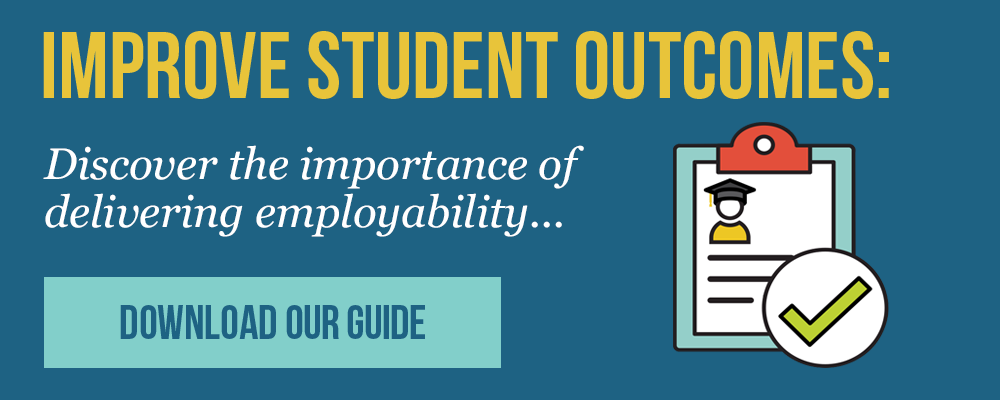
Graduate employment figures have long been the focus when it comes to determining how successfully universities prepare their alumni for life after graduation. But employment figures can be misleading when gauging whether the job market is actually being supplied with the candidates they require. Graduate employability measures graduate work-readiness and are the set of characteristics that mark a candidate out as an attractive prospective employee. Employability skills encompasses transferable skills (problem-solving, teamwork capabilities, communication skills), the ability to market oneself, network, and a positive work ethic. Students are increasingly choosing universities that can help them develop their employability; it’s up to faculty heads to provide the infrastructure to deliver this outcome. A career development programme is an instrumental part of instilling employability in your soon-to-be graduates.
Employability is massively enhanced with the right work experience: career development training prepares students for these work placements
Our previous blog emphasises how crucial work placements and internships are to prepare students for work and help them develop the skills employers seek in employees. Educational research confirms the importance of work experience in enhancing graduate employability. But even work placements are heavily competed for, which means that students need a way of standing out from the crowd when securing internships. A career development programme prepares students to succeed during the work placement application process and equips them with the tools to perform well during the work experience itself. This also introduces students to what will be expected of them in a professional setting.
Employability improves league table rankings, which make your institution a more attractive candidate for the industry partnerships that create work placement opportunities
As well as drawing on personal connections within industries relevant to your students’ fields of interest, university partnerships with professional organisations can create a network from which work employment opportunities may arise. Universities that nurture graduates with strong employability skills will perform better in league tables, and so become more attractive to these professional organisations. The right career development programme will kick-start these vital employability skills in your students.
Provide your students with the support and tools they need to enhance employability
The most effective way to enhance graduate employability is to make students and staff aware of how important employability is for future success. The work involved in developing the suite of skills that employers look for in job candidates can only be done by the students themselves; but as a staff member, it’s your responsibility to provide them with the support and tools they need to do so. By offering them a career development programme, you offer them the platform they need to begin cultivating employability skills. In addition, such a programme can act as a helpful guide to inform staff about enhancing employability so that they can provide more valuable support to students completing the programme.
Ensure the long-term employability prospects of all students at your university by changing how tertiary education is perceived
Being able to create and map out a career plan is a pivotal part of employability. A student might possess all the skills an employer is looking for, but it’s of little use if they don’t have the self-awareness and ambition needed to discover what kind of career they want in the first place. As such, they will struggle to find and attain the jobs that will help them bring their career dreams to fruition. Career development training includes career planning as a component and helps students create and adapt one of their own. To improve student employability in the long-term, student and staff mindsets need to change from that of seeing the university as a means of receiving an academic qualification, to perceiving tertiary education as the beginning of their careers.
Introducing the work-readiness skills graduates need to flourish after university needn’t involve a large investment on the part of your institution. Curriculo’s Industry Engagement Programme (IEP) has been devised by industry experts and fits alongside any degree programme for students to complete individually. For more information on how to enhance employability in your students, contact us here.


